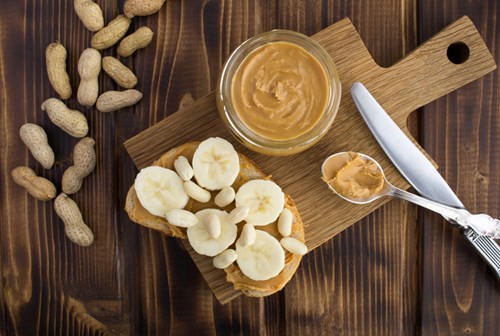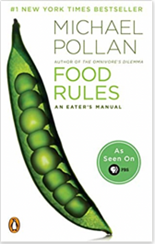Staying Healthy this Winter
by Melinda Taylor Schoutens
Now that we have officially observed Daylight Saving Time, it is evident that the winter months are drawing closer. While some adore the season of colder temperatures, winter activities with kids and special holidays, some dread the frigid dark mornings and nights. With winter, we also grow a bit more anxious about cold and flu season especially during Covid-19.


For our family, the winter is viewed as a time to slow down, gather more routinely at home and savor warm meals under the glow of burning candles. During the winter months, I also make sure we focus on our health by implementing a diet rich in micro-nutrients that is primarily plant-based. By doing what I can to boost our nutrition and emphasize sleep, we feel better equipped to handle the sniffles when they arise.
I also make sure we focus on our health by implementing a diet rich in micro-nutrients that is primarily plant-based
Years ago, when I attended the Institute for Integrative Nutrition, I quickly learned that whenever we eat, we have the opportunity to nourish our bodies and make choices to enhance our health or detract from our overall well-being. As Hippocrates is attributed to saying, “Let food be thy medicine, and let medicine be thy food,” words of wisdom that I have used to guide me throughout the years.
As Hippocrates is attributed to saying, “Let food be thy medicine, and let medicine be thy food”.
With winter quickly approaching and Covid-19 still part of our life, it is important to consider what we eat and how those choices can help our bodies work at their optimal level.
When we eat, we should ask ourselves a few questions before placing our forks in our mouths. Those questions include:
-
Is this food healthy and does it contribute to my overall well-being?
Does this mean that our diets must be perfect 100% of the time? Of course not, we are human and enjoying a sweet treat or a delicious pizza can also fit into a healthy diet. Moderation is key and it’s nice to really enjoy those delicious foods on occasion.
-
How will this food support my physical and emotional needs?
Yes, eating is a very emotional act.
-
Is this food sourced with quality ingredients?
Whenever possible, select organic/bio and locally sourced ingredients.
-
Is this meal easy to make and does it taste good?
I do not believe that delicious food has to be complex.
-
Are these foods rich in color (select fruits and vegetables from all spectrums of the rainbow) and phytonutrients?
-
How does this food make me feel? Oftentimes, the foods we enjoy or eat regularly don’t leave us feeling our best.
Pay close attention to how you feel after eating or drinking certain foods.
-
What foods am I craving and what do those cravings mean?
Sometimes we crave the very foods our bodies need, while other times we are craving something on an emotional level. Learn the difference to support your physical and mental needs.
-
Am I hydrated?
Often times, we think we are hungry, when what we really need is to consume more water. Stay hydrated throughout the day.


When creating meal plans for yourself and your family, here are a few tips to get you started:
- Source quality ingredients, which include local organic fruits and vegetables whenever possible.
- Keep it simple. Good nutrition doesn’t have to be complex and mealtime shouldn’t be viewed as a chore.
- Encourage help. Meal planning and preparation should not be the responsibility of just one person. When planning family meals and cooking, include all members of the family as well as the kids. Assign each member a task and enjoy the time in the kitchen together. Cooking as a family can be a wonderful experience and teaches kids the art of slowing down and bonding over healthy food.
- Seek inspiration. It is not unusual to get in a menu rut, which can leave mealtime quite boring. Seek inspiration from websites, cookbooks and friends. Also, commit to trying a new recipe once a week or month. Ask your children to select a recipe they would like to try, which might just mean they are more inclined to try new foods.
- Juicing. The first thing to know about juicing is that you must have a good quality juicer. I highly recommend the OMEGA juicer. Juicing is a fabulous way to maximize your micro nutrient intake and children are apt to take in juice rather than eating loads of fruits and vegetables. While juicing should not be a replacement for eating fruits and vegetables, it is another healthy way to get nutrients into your diet.
In our house, we typically try to juice something
-
Green such as celery, cucumbers, spinach, parsley, and/or cilantro, something
-
Sweet such as apples, orange, carrots, beets, etc., something
-
Citrus such as lemon or lime, and something
-
Powerful such as ginger or turmeric.
We aim for lots of colors and loads of nutrients. We have found that by juicing powerful flavors with lemon, the juice becomes more palatable. One of my children’s favorite juice recipes consists of oranges, carrots and ginger. For this recipe, we skip the greens and go all in on the carrots!
One of my children’s favorite juice recipes consists of oranges, carrots and ginger. For this recipe, we skip the greens and go all in on the carrots!
Smoothies
As a parent, you can add virtually anything to a smoothy and get away with it, which makes smoothies fantastic! My children, especially my son, loves Kefir (a fermented milk drink), frozen mango, bananas, cinnamon and ground flax seeds (make sure the seeds are ground for better absorption and keep them in the refrigerator). Frozen mixed berries mix well with spinach, rice milk, chia seeds or flax and cinnamon. For additional protein, consider adding almond or cashew butter to your smoothies.
*Add curcuma for additional health benefits.

Soup
During the winter months, there is nothing more comforting than a big bowl of soup and some good bread. Soup is not only delicious; it is also quite nutritious depending on the type of soup you make. Aim for lots of garlic, onions, a healthy stock and loads of veggies. By pureeing the veggies, picky eaters might be more inclined to eat the soup without all the chunks.
Chili is also an excellent choice; rich with beans, chili is a great way to get lots of protein and fiber into your diet during the colder months. Serve with freshly made cornbread for the perfect meal!
Nature Time
Despite the cold temperatures, make nature a priority this winter. Wear the appropriate clothing and commit to spending ample time outside. Not only is the cold invigorating, it is very healthy for us. Activities for kids can include ice skating, sledging, and taking forrest walks.
Adequate Sleep
Sleep is essential to human health regardless of the time of the year, but during the winter months, we typically feel as though we need more sleep. Learn to embrace your desire to retreat to bed earlier and turn off the devices plenty of time before you hit the pillow!
Slow Down
Give yourself permission during the winter months to slow down. Most of us race through our days, which is not ideal. During the winter months draw inspiration from the animals that hibernate and move at a slower pace. You might just enjoy not rushing from place to place and watching the world move in a more relaxed manner.
Meal Plan Ideas
Breakfast

- Oatmeal with nuts, seeds, fresh fruit, and a dash of cinnamon. Add maple syrup for a sweet, rich flavor.
- Porridge with Bifidus yogurt, which contain healthy bacteria, almond butter and wild blueberries
- Omelets with spinach and diced avocados
- Toast with nut butter and sliced bananas
Lunch

- Hummus, fresh vegetables, pitas and olives
- Whole grain or vegetable pasta (COOP makes a delicious brand with sweet potatoes and lentils) red tomato sauce or fresh cut tomatoes and peppers with olive oil and seasoning.
- Veggie sandwiches - load up a brown seed bread with mustard, cheese, spread of your choice, and lots of veggies. In the wintertime, we often crave warming/hot meals. Elevate this sandwich by roasting your vegetables first and melting the cheese on top.
- Whole grain bread toasted with or without butter and avocado. Yum!
- Smoothies
Dinner

- Rice bowls with your favorite rice, beans, tomatoes, cilantro, peppers and avocado for a delicious Mexican style meal
- Veggie burgers with a salad
- Curry with couscous and lots of fresh vegetables
- Soups - “Best Lentil Soup” from Cookie and Kate - my entire family adores this recipe!
- Spinach quiche
- Salad and fresh bread
- A cheese board with different cheeses, fresh wholegrain bread, olives, tomatoes, apples, pears, walnuts, almonds, pesto - really anything goes!
Snacks



Get exciting with your snacks! One of my ultimate favorite snacks is to slice a date down the middle and add a nut butter of choice and sprinkle coconut flakes on top! Pure bliss and it’s healthy too!
- Dates are an incredibly nutritious food, so dive into them today!
- Banana bread - enhance any banana bread recipe with whole grain flower, hemp or flax seeds, nuts, grated carrot or zucchini and chopped apples.
Resources
If you are looking for great books or websites to motivate you to cook delicious meals, I can highly recommend the following:
Moosewood Restaurant Daily Special: More Than 275 Recipes for Soups, Stews, Salads and Extras.
We were gifted the Moosewood Cookbook years ago by my best friend and that single cookbook has been used so often that food is smeared on its pages, recipes are highlighted and we constantly pull it out whenever the autumn arrives for their delicious soups and salads. This is one cookbook that can easily become a staple in every kitchen.
Cookie and Kate delivers fresh, vegetarian recipes that are certain to delight the entire family.
Get inspired by Cookie and Kate here www.cookieandkate.com
Michael Pollan is a prolific writer, journalist, professor, and the mastermind behind the Netflix series Cooked.
His book entitled, Food Rules, breaks down all the myths and complexity behind eating in an easy to read and very adaptable book. His website is a fabulous resource with articles, interviews and detailed information on all of his books, www.michaelpollan.com.
About the Author:
Melinda Taylor Schoutens is a mother, wife, educator and author. Born and raised in the United States, she moved with her husband to Switzerland in 2007. Their initial contract of two - years quickly morphed into 14. Learning to be flexible and open to new possibilities has taught her a great deal. Now, as the mother of two children, Basel feels very much like home.
Melinda is a certified Holistic Health Coach that studied at the Institute for Integrative Nutrition in New York City. Melinda holds a Master’s Degree in Curriculum and Instruction and has taught adults and children on an array of topics. She has designed educational curriculum for years and has curated and delivered a lecture entitled, “The Education of Nature.” She sits on the Board of Directors for HSK English Basel and is the author of the Fresh Air Kids Switzerland book series, which you can oder here.
To contact or to work with Melinda, please send an email to: melschoutens@gmail.com
Related Articles
-
Tips to help children eat more vegetables
-
Teens Are Constantly Thinking About Food & Eating. Here Is What You Can Do To Help.
-
Top 5 Family Restaurants in Zurich
-
Teaching Responsibility to kids
-
How can I help my Child with Financial Education?
-
Tips for Getting Outside with Older Children
-
Tips for an Overnight Stay in Mountain Huts in Switzerland
-
Choosing the right hiking boots
-
10 Reasons to Go Hiking with Your Kids
-
Camping with Kids
Sign up here to hear more from us!
Read more from our list of topics about how to have fun with kids








